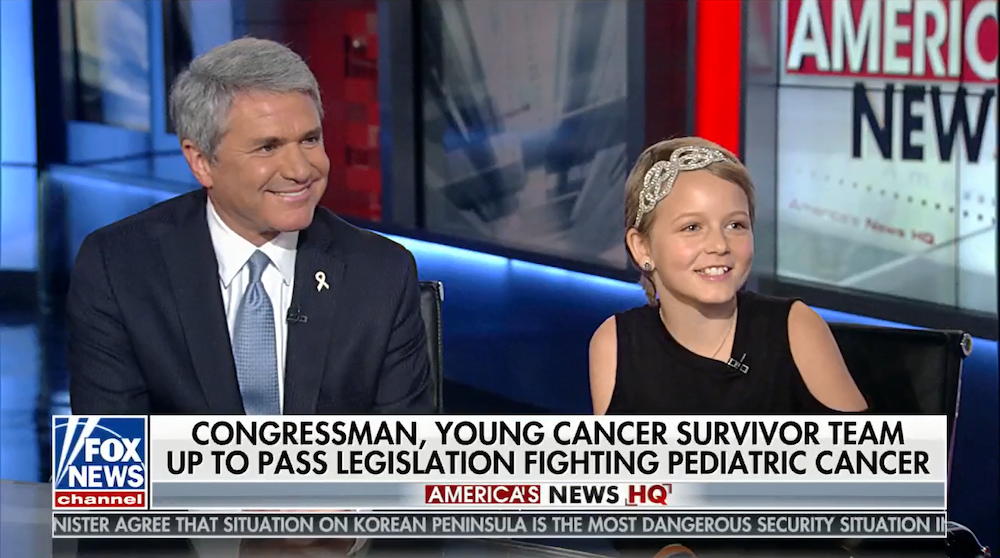Op-Ed: Stopping human trafficking will require greater communication among agencies and communities
By Michael McCaul
1/31/19
Human trafficking is the barbaric practice of profiting in people, a form of slavery we assumed had been assigned to the ash heap of history. Sadly, today nearly 25 million people around the world are victims of trafficking.
Make no mistake, the trafficking industry has become a global enterprise that rakes in billions of dollars a year. The Federal Bureau of Investigation declared human trafficking the third-largest criminal activity in the world. The FBI notes that ending this horrific practice will require a robust response from community leaders, all levels of law enforcement and government agencies.
Trafficking does not discriminate based on race, political ideology or income. While it is infecting communities throughout the nation, we in Texas are especially familiar with this pure evil.
According to data compiled by the Institute on Domestic Violence and Sexual Assault at the University of Texas, there are 300,000 victims of trafficking in Texas. Worst of all, almost 80,000 of those victims are children.
As a father of five, I refuse to allow this to happen. We all have a responsibility to eradicate this disgusting practice and protect our children. Working together will be the only way we achieve success.
When I chaired the U.S. House Homeland Security Committee, I worked with the Department of Homeland Security to ensure it improved our information sharing and interagency communication to combat human trafficking.
For example, I elevated the DHS’s Blue Campaign program, which focuses on coordinating intelligence sharing between agencies at all levels of law enforcement. We did this to ensure the department had the tools and resources and tools it needs to expand its work and improve its outreach. This guarantees DHS is better positioned to improve its relationships with law enforcement, non-government and other private organizations to raise public awareness about human trafficking. The president signed this legislation into law last year.
In addition to supporting law enforcement anti-trafficking programs, it is also imperative we engage community leaders to better understand the totality of the threat. That is why I frequently host roundtable discussions with federal, state and local officials to develop solutions.
We are fortunate to have incredible anti-trafficking and victim-support organizations right here in our own backyard. Groups such as Childproof America, The Refuge, Tomball Shield Bearer Human Trafficking Group, Austin 20, Houston 20, and countless others provide recovery aid to victims.
These community engagements provide keen insight that facilitate bipartisan solutions in Washington.
Just this week I introduced bipartisan legislation, the Interdiction for the Protection of Child Victims of Exploitation and Human Trafficking Act, with Sen. John Cornyn, Rep. Henry Cuellar and Sen. Catherine Cortez Masto of Nevada, which builds upon a successful training program started right here in Texas.
In 2007, Capt. Derek Prestridge of the Texas Department of Public Safety realized that DPS made nearly 3 million traffic stops a year where they identified a variety of crimes, yet none of these stops led to the identification of missing or at-risk children. In response, DPS developed the Interdiction for Protection of Children training program to educate patrol officers and child service professionals across the country on ways to identify exploited, trafficked, missing and sexually abused children.
With few resources and little money, Texas has led the nation in the battle to end trafficking and safeguard our children through IPC.
This new legislation builds upon the program’s success by requiring the U.S. attorney general to establish a pilot program for federal, state and local law enforcement to provide this essential training.
If we truly want to make a difference and end human trafficking once and for all, it requires consistent, holistic and constant engagement from all of us. I firmly believe we must — and will — be successful in our fight.
In my new post as the Republican Leader of the House Foreign Affairs Committee, I remain fully committed to protecting those in Texas, the nation and around the globe from the evil acts of human trafficking.
The fight is not over; it is just beginning.


